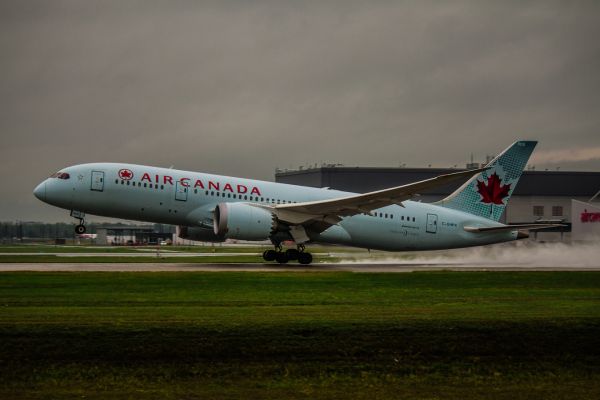Canada is a popular destination for travelers from around the world, offering stunning natural landscapes, vibrant cities, and a diverse cultural experience. Whether you are visiting for tourism, business, or to reunite with family, it is essential to understand the travel requirements to ensure a smooth and enjoyable trip. This comprehensive guide outlines the key requirements for traveling to Canada, including visa information, entry procedures, health regulations, and other essential considerations.
Visa and Entry Requirements
1. Electronic Travel Authorization (eTA)
Who Needs It:
- Visa-exempt foreign nationals flying to or transiting through Canada.
Requirements:
- Valid passport from a visa-exempt country.
- Credit or debit card to pay the CAD $7 fee.
- Email address for communication.
Validity:
- An eTA is typically valid for up to five years or until the passport expires, whichever comes first.
Application Process:
- The eTA application is a straightforward online process that takes only a few minutes to complete.
2. Visitor Visa (Temporary Resident Visa)
Who Needs It:
- Nationals from countries that require a visa to enter Canada.
Requirements:
- Valid passport.
- Completed visa application form.
- Proof of financial support.
- Invitation letter (if applicable).
- Travel itinerary and return ticket.
- Biometrics (fingerprints and photograph).
Validity:
- Visitor visas can be issued for single or multiple entries, with a validity of up to 10 years or one month before the passport expires.
Application Process:
- Apply online or at a Visa Application Centre (VAC).
3. COVID-19 Entry Requirements
Vaccination Requirements:
- Proof of full vaccination with a recognized vaccine is typically required.
Testing Requirements:
- Negative COVID-19 test result (PCR or antigen) taken within a specified time before departure.
Quarantine Requirements:
- Depending on the traveler’s vaccination status and country of origin, quarantine may be required.
Health Declaration:
- Completion of a health declaration form upon arrival.
Travel Documentation
4. Passport Requirements
Validity:
- Ensure your passport is valid for at least six months beyond your intended stay in Canada.
5. Proof of Funds
Requirements:
- Travelers may be asked to show proof of sufficient funds to support themselves during their stay in Canada.
6. Travel Insurance
Recommendations:
- It is highly recommended to have comprehensive travel insurance covering medical expenses, trip cancellations, and other unexpected events.
Customs and Immigration
7. Declaration Form
Requirements:
- All travelers must complete a declaration form detailing items they are bringing into Canada.
8. Prohibited Items
Items to Declare:
- Certain foods, plants, animals, and other goods may be restricted or prohibited.
9. Personal Medications
Documentation:
- Carry a copy of your prescription and ensure that medications are in their original packaging.
Arrival Procedures
10. Primary Inspection Kiosks
Process:
- Upon arrival, travelers use Primary Inspection Kiosks to verify their identity and submit their declaration form.
11. Secondary Inspection
When Required:
- Travelers may be directed to a secondary inspection for further questioning or verification of documents.
Traveling with Family
12. Minors Traveling Alone
Documentation:
- Minors must carry a letter of consent from their parents or guardians if traveling alone or with one parent.
13. Family Reunification
Requirements:
- Spouses, common-law partners, and dependent children may need to provide additional documentation to prove their relationship to the Canadian resident.
Business Travel
14. Business Visitor Visa
Eligibility:
- Business visitors must show they are entering Canada for business purposes and not for employment.
Requirements:
- Invitation letter from the Canadian business, proof of business activities, and evidence of ties to the home country.
Student Travel
15. Study Permit
Requirements:
- Acceptance letter from a Designated Learning Institution (DLI), proof of financial support, and other supporting documents.
Validity:
- The study permit is valid for the duration of the study program plus an additional 90 days.
Working in Canada
16. Work Permit
Eligibility:
- Job offer from a Canadian employer, Labour Market Impact Assessment (LMIA) (if applicable), and other necessary documentation.
Types of Work Permits:
- Employer-specific work permit and open work permit.
Travel Tips and Advice
17. Best Time to Visit
Seasons:
- Canada experiences four distinct seasons. The best time to visit depends on the activities you are interested in (e.g., skiing in winter, hiking in summer).
18. Transportation
Options:
- Canada has a well-developed transportation network including buses, trains, and domestic flights.
Driving Requirements:
- International visitors may need an International Driving Permit (IDP) along with their home country’s driver’s license.
19. Currency and Payments
Currency:
- The official currency is the Canadian Dollar (CAD).
Payment Methods:
- Credit and debit cards are widely accepted. It is advisable to carry some cash for small transactions.
20. Safety and Security
General Tips:
- Canada is considered a safe destination, but travelers should remain vigilant, especially in urban areas.
Conclusion
Traveling to Canada requires careful planning and preparation to ensure all entry requirements are met. From obtaining the necessary visas and documentation to understanding health regulations and customs procedures, staying informed will make your journey smoother. Canada’s welcoming nature, stunning landscapes, and vibrant culture make it a worthwhile destination for tourists, business travelers, students, and those visiting families.
Start planning your trip to Canada today and experience all that this beautiful country has to offer.







